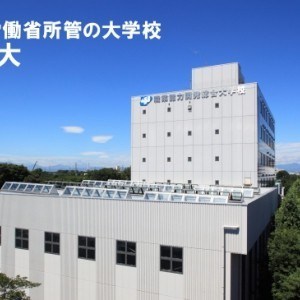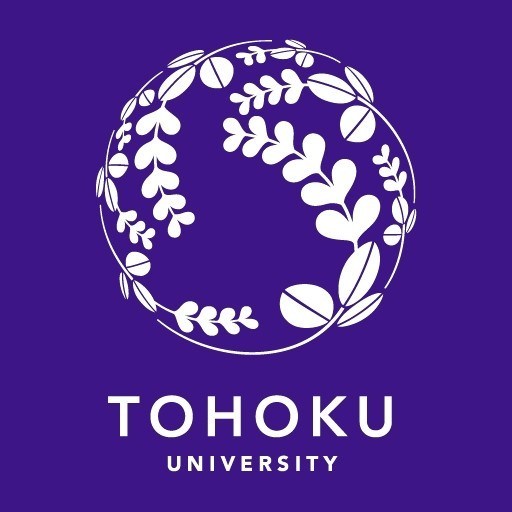Electrical, Electronic and Information Engineering at Nagoya University is a comprehensive undergraduate program designed to equip students with fundamental knowledge and practical skills in the rapidly evolving fields of electrical engineering, electronics, and information technology. The program aims to cultivate engineers who can contribute to the development of innovative solutions for societal challenges by integrating principles of electrical circuits, digital systems, control engineering, communication technologies, and software development. Students have the opportunity to engage in hands-on laboratory work, innovative research projects, and industry collaboration, fostering a deep understanding of both theoretical frameworks and real-world applications. The curriculum is structured to cover core areas such as electromagnetism, signal processing, microelectronics, embedded systems, and data communications, while also promoting interdisciplinary learning and critical thinking. Nagoya University emphasizes a global perspective, encouraging students to participate in international exchanges and collaborative research initiatives, thereby preparing graduates for careers in academia, industry, or entrepreneurship worldwide. Faculty members are distinguished researchers and practitioners dedicated to mentoring students and advancing technological frontiers. Throughout their studies, students develop essential skills in problem-solving, teamwork, and innovation, ensuring they are well-equipped to contribute meaningfully to the advancement of electrical and information engineering technologies. By fostering an environment of scientific excellence and practical proficiency, this program aims to produce skilled engineers who will drive progress in areas such as renewable energy, smart infrastructure, telecommunications, and artificial intelligence. Graduates of this program will be prepared to meet the demands of a dynamic global job market and to lead the development of next-generation electronic and information systems that benefit society at large.
Basic Specialized Courses
|
Lecture Code |
Course Title |
credits |
Starts (Elective/Compulsory) |
|
10207 |
Computer Software I |
2.0 |
1 Autumn Semester |
|
10770 |
Fundamental Physics Tutorial Ia |
1.0 |
1 Autumn Semester |
|
10771 |
Fundamental Physics Tutorial I b |
1.0 |
1 Autumn Semester |
|
10516 |
Fundamental Physics Tutorial IIa |
1.0 |
1 Spring Semester |
|
10517 |
Fundamental Physics Tutorial IIb |
1.0 |
1 Spring Semester |
|
10209 |
Mathematics I and Tutorial |
3.0 |
2 Autumn Semester |
|
10210 |
Mathematics II and Tutorial |
3.0 |
2 Autumn Semester |
|
10241 |
Analytical Dynamics and Tutorial |
2.5 |
2 Autumn Semester |
|
10242 |
Electrical Circuits Engineering |
2.0 |
2 Autumn Semester |
|
10243 |
Mechanics of Materials and Tutorial |
2.5 |
2 Autumn Semester |
|
10244 |
Thermodynamics and Tutorial |
2.5 |
2 Autumn Semester |
|
10245 |
Kinematics of Machines |
2.0 |
2 Autumn Semester |
|
10164 |
Electricity and Magnetism |
2.0 |
2 Spring Semester |
|
10246 |
Metallic and Ceramic Materials |
2.0 |
2 Spring Semester |
|
10247 |
Electronic Circuits |
2.0 |
2 Spring Semester |
|
10248 |
Solid Mechanics |
2.0 |
2 Spring Semester |
|
10249 |
Fluid Mechanics I and Tutorial |
2.5 |
2 Spring Semester |
|
10250 |
Vibration Engineering and Tutorial |
2.5 |
2 Spring Semester |
|
10251 |
Automobile Chemical Systems I |
2.0 |
3 Autumn Semester |
|
10252 |
Scientific Measurements |
2.0 |
3 Autumn Semester |
|
10253 |
Control Engineering and Tutorial |
2.5 |
3 Autumn Semester |
|
10254 |
Material Processing |
2.0 |
3 Autumn Semester |
Specialized Courses
|
Lecture Code |
Course Title |
credits |
Starts (Elective/Compulsory) |
|
10827 |
Mathematics Tutorial Ia |
1.0 |
1 Autumn Semester |
|
10828 |
Mathematics Tutorial Ib |
1.0 |
1 Autumn Semester |
|
10255 |
Introduction to Automotive Engineering |
2.0 |
1 Autumn Semester |
|
10829 |
Mathematics Tutorial II a |
1.0 |
1 Spring Semester |
|
10830 |
Mathematics Tutorial II b |
1.0 |
1 Spring Semester |
|
10220 |
Computer Software II |
2.0 |
1 Spring Semester |
|
10256 |
Vehicle Structures |
2.0 |
2 Spring Semester |
|
10519 |
Introduction to Electrical/ Electronic and Information Engineering for Automobiles |
2.0 |
2 Spring Semester |
|
10257 |
Design Practice I |
1.0 |
2 Spring Semester |
|
10264 |
Automobile Engineering Laboratory I |
2.0 |
3 Autumn Semester |
|
10258 |
Analytical Chemistry |
2.0 |
3 Autumn Semester |
|
10259 |
Urban Environment and Transportation System |
2.0 |
3 Autumn Semester |
|
10260 |
Power Electronics |
2.0 |
3 Autumn Semester |
|
10261 |
Numerical Analysis |
2.0 |
3 Autumn Semester |
|
10262 |
Heat Transfer Engineering |
2.0 |
3 Autumn Semester |
|
10265 |
Design Practice II |
1.0 |
3 Autumn Semester |
|
10266 |
Tours in Industrial Plants A |
0.5 |
2 Spring Semester |
|
10267 |
Tours in Industrial Plants B |
0.5 |
3 Autumn Semester |
|
10268 |
Training in Industrial Plants |
1.0 |
3 Spring Semester |
|
10276 |
Automobile Engineering Laboratory II |
2.0 |
3 Spring Semester |
|
10269 |
Automobile Chemical Systems II |
2.0 |
3 Spring Semester |
|
10183 |
Organic Materials |
2.0 |
4 Autumn Semester |
|
10271 |
Environment and Recycling |
2.0 |
3 Spring Semester |
|
10272 |
Intelligent Transportation Systems |
2.0 |
3 Spring Semester |
|
10273 |
Electronic Devices in Automobiles |
2.0 |
3 Spring Semester |
|
10274 |
Vehicle Engines and New Propulsion Systems |
2.0 |
3 Spring Semester |
|
10275 |
Vehicle Dynamics and Control |
2.0 |
3 Spring Semester |
|
10206 |
Introduction to Production Engineering |
2.0 |
3 Spring Semester |
|
10278 |
Vehicle Safety |
2.0 |
4 Autumn Semester |
|
10280 |
Vehicle Design |
2.0 |
4 Autumn Semester |
|
10520 |
Graduation Research A |
2.5 |
4 Autumn Semester |
|
10521 |
Graduation Research B |
2.5 |
4 Spring Semester |
Related Specialized Courses
|
Lecture Code |
Course Title |
credits |
Starts (Elective/Compulsory) |
|
10282 |
Scientific and Technical Japanese |
2.0 |
3 Spring Semester |
|
10283 |
Business Japanese |
2.0 |
4 Autumn Semester |
|
10202 |
Outline of Engineering III |
2.0 |
4 Autumn Semester |
|
10203 |
View of Advanced Electrical/ Electronic and Information Engineering |
2.0 |
4 Autumn Semester |
|
10204 |
Introduction to Civil Engineering and Architecture |
2.0 |
4 Autumn Semester |
|
10240 |
Introduction to Chemical and Biological Industries |
2.0 |
4 Spring Semester |
|
10205 |
Introduction to Applied Physics/ Materials and Energy Engineering |
2.0 |
4 Spring Semester |
- Application fee: JPY 5,000
- Non-Refundable Registration Fee One time payment at admission JPY282,000
- High/Secondary School Graduation Diploma (required)*
- Academic Transcript (required)*
- Standardized Test Scores (if applicable)*
- English Language Proficiency Test Score (if applicable)*
- Two Essays (required)
- Two Reference Letters (required)
- Copy of Passport/Government Issued ID card (required)
- Nagoya University Global 30 Scholarship Application and Income Statement (if applicable)
Financial support for the Electrical, Electronic and Information Engineering program at Nagoya University includes a variety of scholarships, grants, and funding opportunities for both domestic and international students. The university offers several merit-based scholarships aimed at highly qualified students, which cover a portion or all of their tuition fees and, in some cases, provide a monthly stipend to assist with living expenses. These scholarships are awarded based on academic achievements, research potential, and other criteria set by the university or sponsoring organizations.
Additionally, Nagoya University participates in joint scholarship programs with government agencies such as the Japanese Government (MEXT) Scholarship, designed to support international students pursuing long-term studies in Japan. MEXT scholarships typically cover tuition, provide a monthly stipend for living expenses, and include airfare. International students are encouraged to apply for these scholarships upon admission. The university also offers limited financial aid and fee reduction options for students facing economic difficulties, with application processes that require documentation demonstrating financial need.
Students are also supported through research assistantships and teaching assistantships, which provide financial remuneration in exchange for contributing to university research projects or teaching duties. These opportunities not only fund students but also enhance their academic and professional experience. Many students seek external scholarships provided by their home governments, international organizations, or private foundations, which often support study abroad in STEM fields like electrical and electronic engineering.
Nagoya University promotes a comprehensive financial support environment to attract talented students from around the world and ensure that financial barriers do not prevent qualified individuals from pursuing their studies in Electrical, Electronic and Information Engineering. Students are advised to consult the university’s official admissions and financial aid websites regularly for updated scholarship deadlines, eligibility requirements, and application procedures. Overall, the university's goal is to foster an inclusive academic community where students can focus on their research and studies without undue financial stress.
Monthly Living Expense
| Item | Estimated monthly cost |
|---|---|
| Accommodation (Off-campus apartment) | ¥ 30,000-50,000 |
| Utility | ¥ 10,000 |
| Food | ¥ 30,000 |
| Telecommunications | ¥ 5,000 |
| Insurance | ¥ 1,500 |
| Other personal expenses | ¥ 10,000 |
| Total | ¥ 86,500-106,500 |
*Living expense vary depending on students’ lifestyle and spending patterns. The amount suggested above is for reference only.









